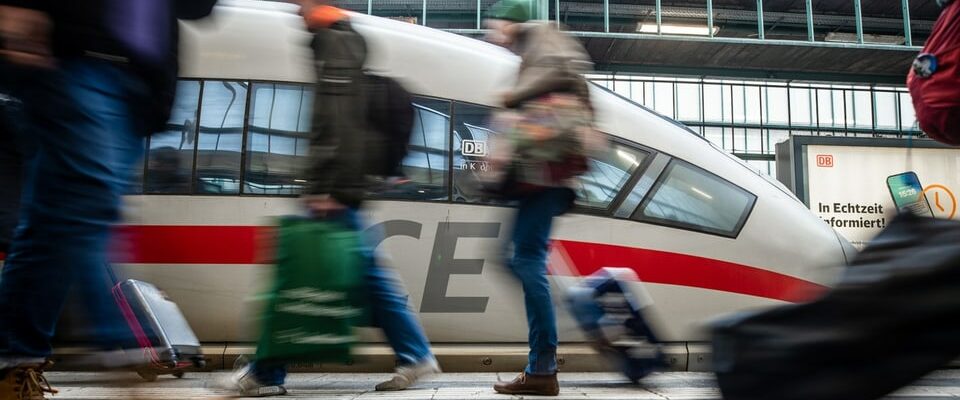- The train drivers’ union GDL ended the strike at Deutsche Bahn on Friday evening, as GDL boss Claus Weselsky announced.
- The emergency timetable runs for a few more hours. Trains should run normally again from early Saturday morning.
- The GDL now wants to take a break from the strike and give Deutsche Bahn time to make a new offer.
“Deutsche Bahn is preparing to run its normal passenger services again from the start of operations on Saturday morning and to enable a smooth start to operations,” the railway said. Only in individual regions could more trains run again in local and S-Bahn traffic immediately after the end of the strike.
Legend:
Deutsche Bahn wants to run its normal passenger services again from Saturday morning.
Keystone/Christoph Schmidt
Meanwhile, the GDL has threatened another and even longer industrial dispute. “After these strike measures have been completed, we will give the company some time to come to its senses,” said Weselsky in Berlin at the end of the latest strike. “If they don’t do that, the next industrial action will follow. It will be longer and it will hit the company even harder.” Weselsky did not give a date for the next strike.
Assurance from regional railway company
At DB competitor Transdev, the strike surprisingly ended on Friday at 12 p.m. In a new offer, the company assured the union that it would “seriously negotiate all the core demands of the current collective bargaining round,” said the GDL.
Transdev confirmed the new offer and announced negotiations for next Monday. The company operates regional rail lines in North Rhine-Westphalia, Lower Saxony, Saxony and Bavaria, among others.
Weselsky expects concessions from the DB
The GDL’s core demand for both companies is to reduce working hours from 38 to 35 hours for shift workers with full wage compensation. Bahn and Transdev have so far rejected this. The GDL therefore declared the negotiations for both companies to have failed before the turn of the year. Some smaller railway companies, Netinera and Go Ahead, already have a deal in which the GDL’s demand is reflected.
There can only be a resumption of collective bargaining if the railway shows itself to be open to the core demands, said Weselsky. So far, Deutsche Bahn has only offered to expand existing working time models. Anyone who reduces their working hours in this context must accept financial losses.
Ready for negotiations
The railway in turn called on the GDL to return to the negotiating table. “We are ready to negotiate, we are ready to talk,” said DB spokeswoman Bröker. “It is now also up to the GDL to return to the table. Strikes to enforce all demands – that’s not how collective bargaining works.”
The third and longest labor dispute to date in the collective bargaining dispute with the railways began early on Wednesday morning in passenger transport and on Tuesday evening in freight transport. According to its own information, the railway put a good 20 percent of the usual long-distance transport on the rails with an emergency timetable. In regional transport, the effects of the strike varied greatly depending on the federal state.
